选择热点
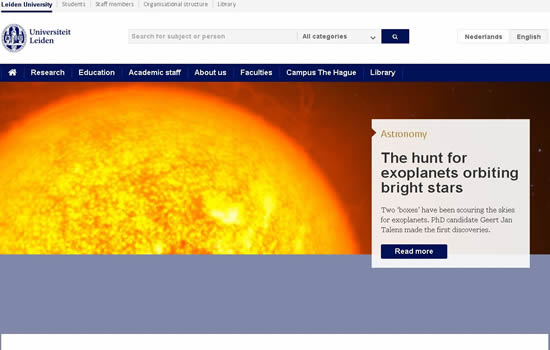 荷兰莱顿大学
荷兰莱顿大学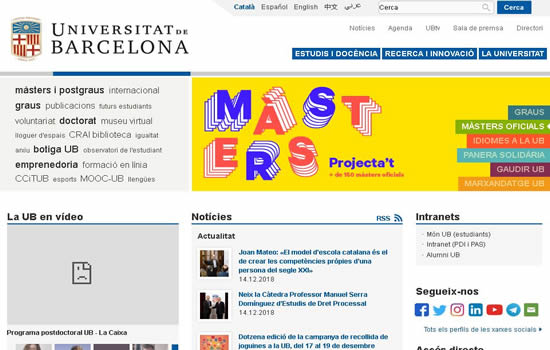 西班牙巴塞罗那大学
西班牙巴塞罗那大学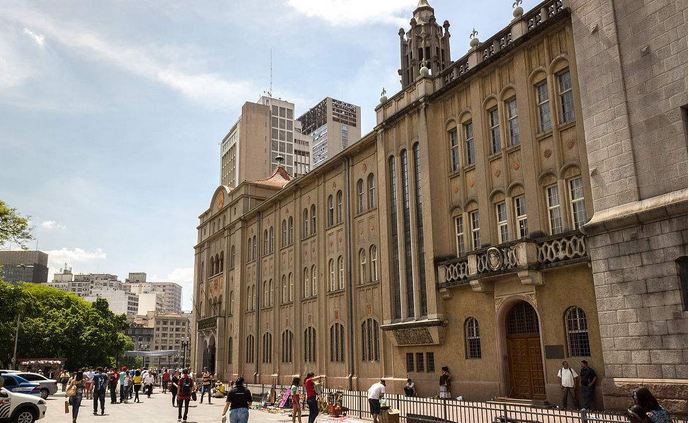 巴西圣保罗大学 University of Sao Paulo, Brazil
巴西圣保罗大学 University of Sao Paulo, Brazil 台湾南华大学 University of South China in Taiwan
台湾南华大学 University of South China in Taiwan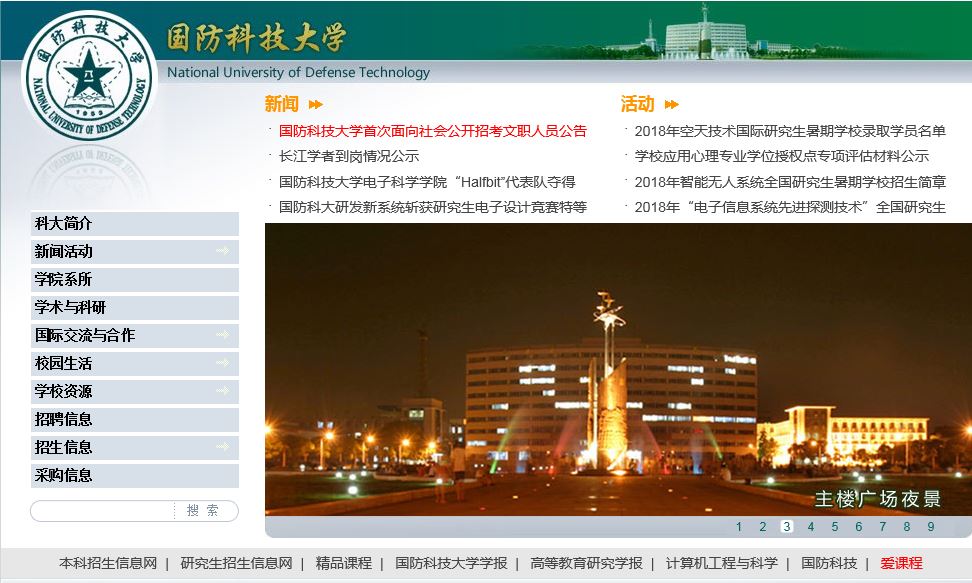 科技大学 National University of Defense Technology
科技大学 National University of Defense Technology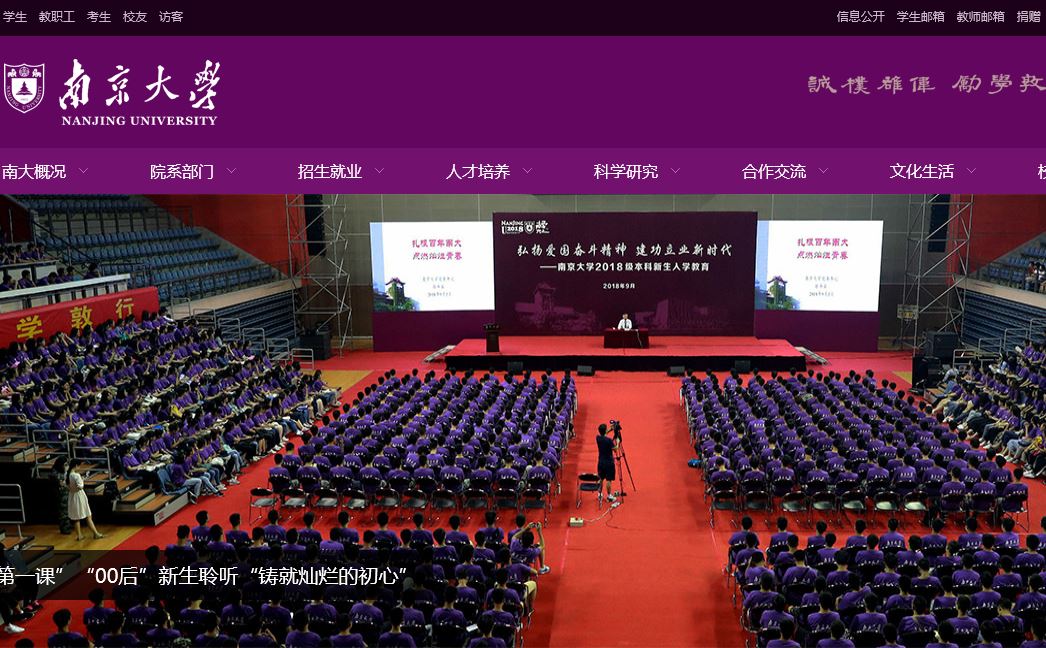 南京大学 Nanjing University
南京大学 Nanjing University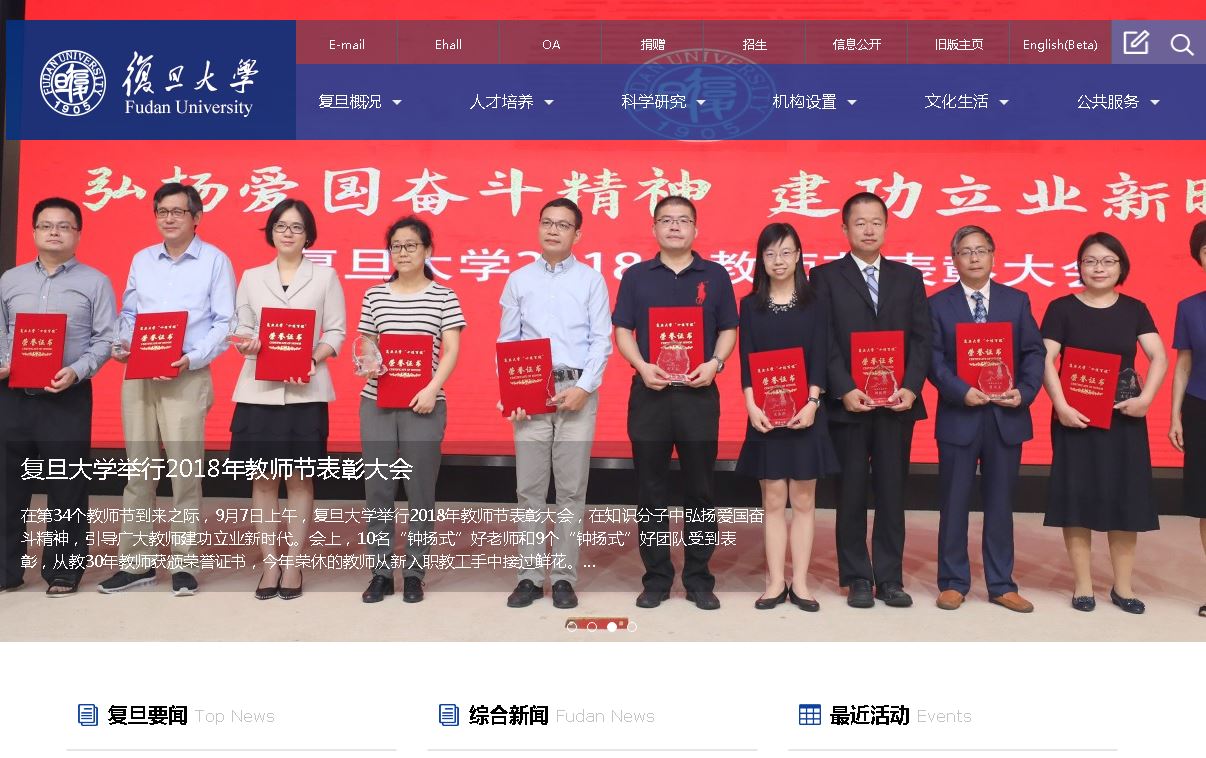 上海复旦大学 Fudan University
上海复旦大学 Fudan University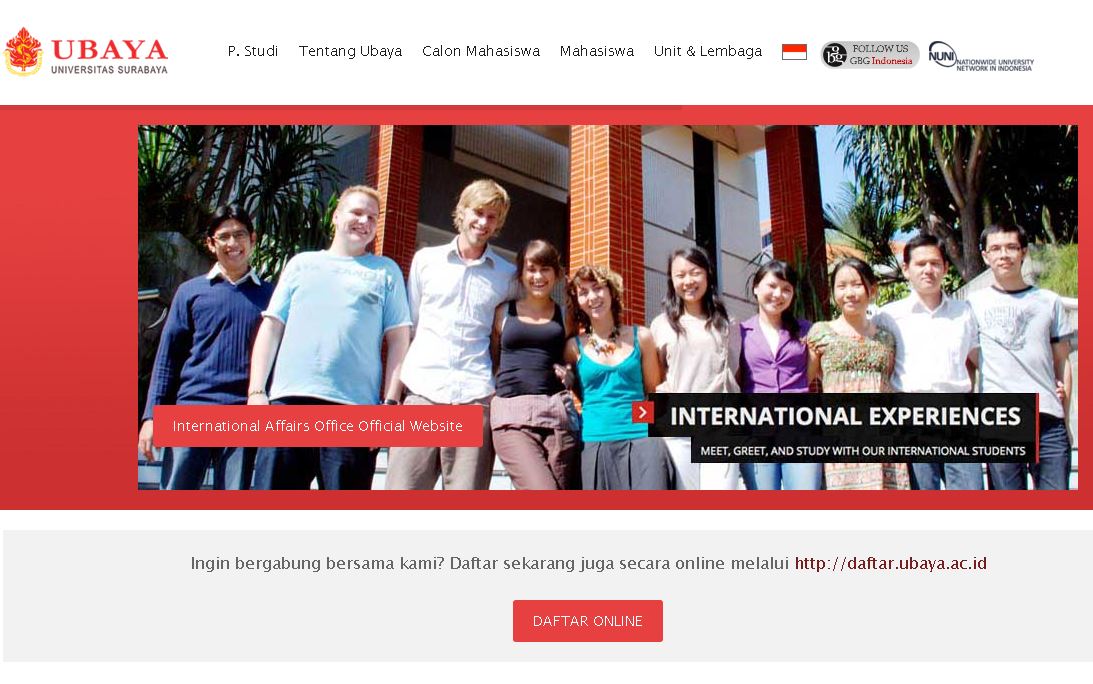 泗水大学(Ubaya)
泗水大学(Ubaya) 印尼大学 universitas indonesia
印尼大学 universitas indonesia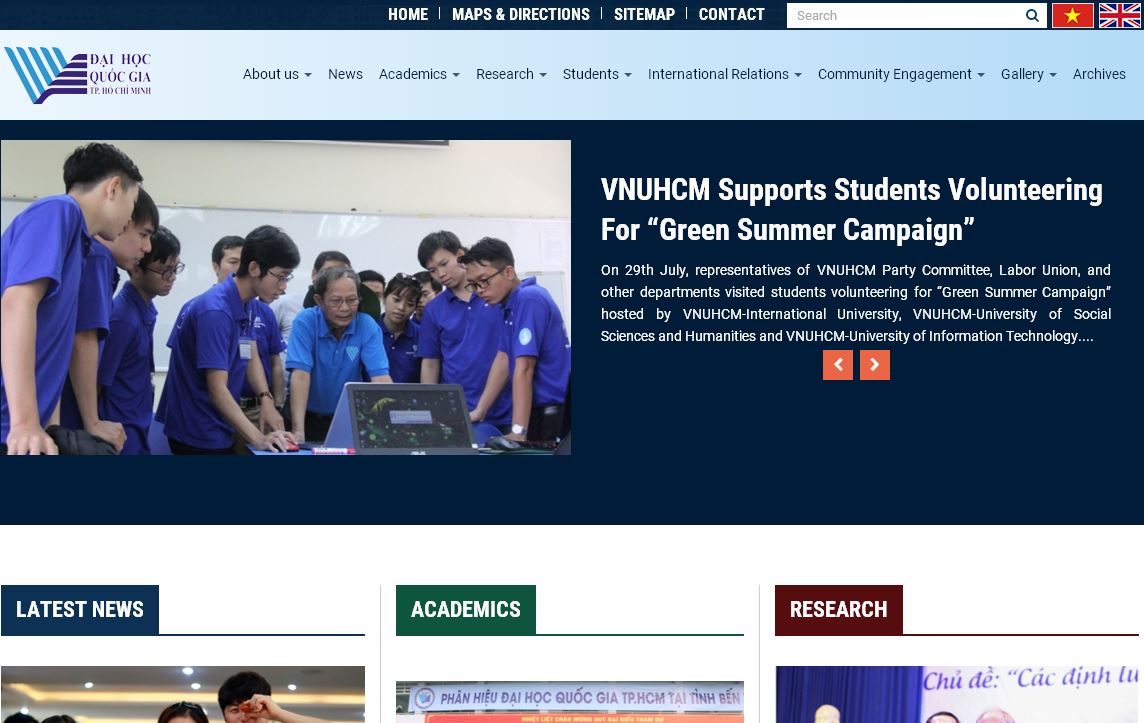 越南某大学 Vietnam National University
越南某大学 Vietnam National University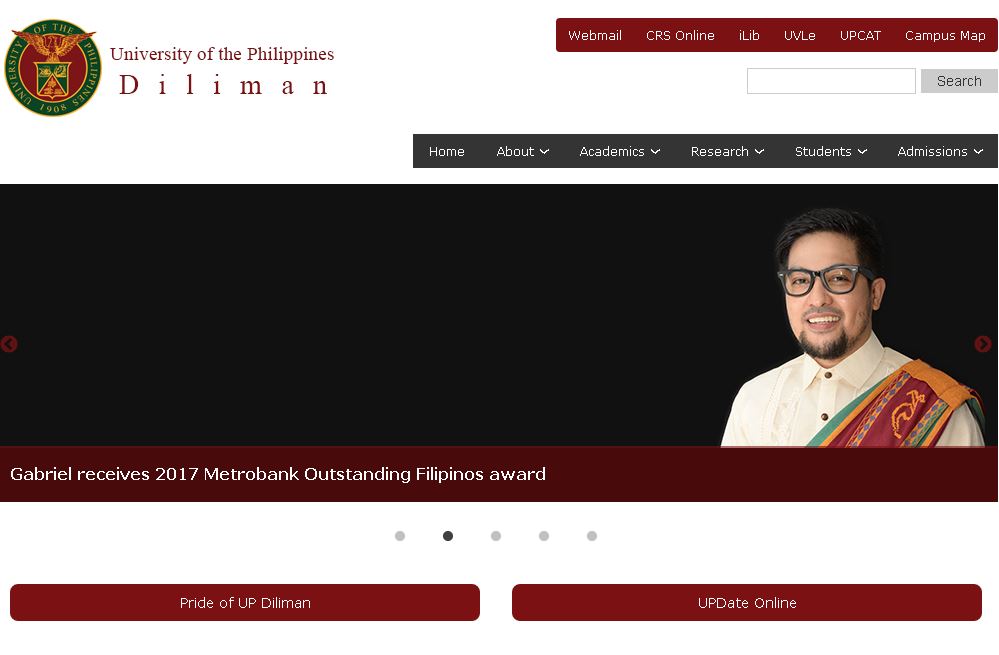 菲律宾大学 University Of The Philippines
菲律宾大学 University Of The Philippines
双语诗歌翻译|张溥·五人墓碑记
发布时间:2025-01-06
来源:大学网站
五人墓碑记 是明朝著名文学家张溥的作品。
描述了明朝末年的东林党人和苏州人民不畏强暴与魏忠贤之流英勇斗争的事迹,歌颂了其中五人“激昂大义,蹈死不顾”的英雄气概,揭示了“明死生之大,匹夫之有重于社稷”的主题思想。
张溥 五人墓碑记 五人者,盖当蓼洲周公之被逮,激于义而死焉者也。
至于今,郡之贤士大夫请于当道,即除魏阉废祠之址以葬之,且立石于其墓之门,以旌其所为。
呜呼,亦盛矣哉!
夫五人之死,去今之墓而葬焉,其为时止十有一月耳。
夫十有一月之中,凡富贵之子,慷慨得志之徒,其疾病而死,死而湮没不足道者亦已众矣;况草野之无闻者欤?
独五人之皦皦,何也?
予犹记周公之被逮,在丁卯三月之望,吾社之行为士先者,为之声义,敛赀财以送其行,哭声震动天地。
缇骑按剑而前,问:“谁为哀者?
”众不能堪抶而仆之。
是时以大中丞抚吴者为魏之私人,周公之逮,所由使也。
吴之民方痛心焉,于是乘其厉声以呵,则噪而相逐,中丞匿于溷藩以免。
既而以吴民之乱请于朝,按诛五人,曰颜佩韦、杨念如、马杰、沈扬、周文元,即今之儡然在墓者也。
然五人之当刑也,意气扬扬,呼中丞之名而詈之,谈笑以死;断头置城上,颜色不少变。
有贤士大夫发五十金,买五人之脰而函之,卒与尸合。
故今之墓中,全乎为五人也。
嗟夫!
大阉之乱,缙绅而能不易其志者,四海之大,有几人欤?
而五人生于编伍之间,素不闻诗书之训,激昂大义,蹈死不顾,亦曷故哉?
且矫诏纷出,钩党之捕遍于天下;卒以吾郡之发愤一击,不敢复有株治。
大阉亦逡巡畏义,非常之谋,能于猝发,待圣人之出而投环道路,不可谓非五人之力也。
由是观之,则今之高爵显位,一旦抵罪,或脱身以逃,不能容于远近;而又有剪发杜门,佯狂不知所之者,其辱人贱行,视五人之死,轻重固何如哉!
是以蓼洲周公忠义暴于朝廷,赠谥美显,荣于身后,而五人亦得以加其土封,列其名于大提之上。
凡四方之士,无有不过而拜且泣者,斯固百世之遇也。
不然,令五人者保其首领,以老于户牖之下,则尽其天年,人皆得以隶使之,安能屈豪杰之流,扼腕墓道,发其志之悲哉?
故予与同社诸君子,哀斯墓之徒有其石也,而为之记,亦以明死生之大,匹夫之重于社稷也。
贤士大夫者:冏卿因之吴公,太史文起文公、孟长姚公也。
A Record for the Five Men's TombZhang PuThese five men died for their just action at the time ofMr Zhou Shunchang’s (1) arrest.
Now some worthy gentlemen of our prefecturehave obtained permission from the authorities to bury them in the place whereonce stood the Temple of the Eunuch Wei, now demolished, and to erect a stoneat the entrance to the tomb to commemorate them.
This is admirable.
Only elevenmonths have passed since the death of these five men and their burial in thistomb.
During these successful careerists, to say nothing of nameless folk inthe countryside, have been struck down and killed by disease and straightawayforgotten.
Why then do these five men outshine all others?
I still remember Mr Zhou’s arrest, on the fifteenth ofthe third month last year (2).
The leading scholars of our society (3), eagerto champion justice, raised money to see him off.
The sound of lamentationsshook heaven and earth.
When mounted guards advanced with drawn swords tochallenge the mourners, the crowd goaded beyond endurance beat them down.
Theimperial censor and inspector-general of Suzhou at that time was a million ofWei Zhongxian and responsible for Mr Zhou’s arrest.
When he tried to intimidatethe citizens of Shuzhou in their distress, they raised such an uproar that heonly escaped by hiding in a privy.
He reported this riot in Suzhou to the courtand had five men condemned to death, namely, Yan Peiwei, Yang Nianru, Ma Jie,Shen Yang and Zhou Wenyuan, who have now been buried together.
These five menfaced their execution gallantly, cursing the censor by name and chatting andlaughing together before they died.
When their heads were displayed on thecitadel, none of them had changed countenance.
Some worthy gentlemen bought thefive men’s heads for fifty taels of silver and carried them off in a casket torestore them to the corpses.
So now the five bodies in the tomb are whole.
During the havoc caused by the chief eunuch, pitifullyfew officials within the whole realm were able to retain their integrity.
Yetthese five men from common families, with no education in the classics, stoodup for justice and met death without flinching.
How can we account for this?
When the eunuch went on to forge imperial decrees and arrest"confederates" all over the empire, he dared not victimize ourprefecture further because we had fought back.
It was, indeed, fear of thisjust indignation which made him hesitate to carry out his treasonous plot; andthen, when our sage sovereign ascended the throne, he hanged himself by theroadside.
Part of the credit for this undoubtedly belongs to these five men.
Judging by this, once great lords in high positions arein trouble they will try to run away or, unable to find a refuge anywhere, willbecome monks, live as recluses or feign madness.
How can their despicablebehavior compare with the death of these five men?
Thus Mr Zhou Shunchangproved his loyalty and justice to the court so that he won fame after death andwas honoured with posthumous titles.
These five men, too, received due burialand have their names inscribed on the dyke where passersby from every side willone and all play their respects and lament for them.
Only once in a hundredgenerations does such a thing happen.
Had these five men not been beheaded butgrown old and lived out the full span of their lives at home, they would havebeen treated as slaves; nor would brave and eminent men come here, heart-stricken,to mourn at these martyrs’ graves.
The members of our society thought it a pitythat there was only a stone tablet at the tomb, and so we have made thisrecord.
Also to show that in the momentous issues of life and death, commoncitizens may do the country a great service.
With acknowledgements to these worthy gentlemen: Mr WuYinzhi, Master of the Imperial Equipage; Mr Wen Wenqi, Imperial Historian; andMr Yao Mengchang.
(1)Zhou Shunchang of Suzhou who offended the chief eunuchWei Zhongxian and died in prison.
(2)The seventh year of the reign of Tianqi, 1627.
(3)The Donglin Society.
【双语诗歌翻译|张溥·五人墓碑记 查看网站:[db:时间]】
描述了明朝末年的东林党人和苏州人民不畏强暴与魏忠贤之流英勇斗争的事迹,歌颂了其中五人“激昂大义,蹈死不顾”的英雄气概,揭示了“明死生之大,匹夫之有重于社稷”的主题思想。
张溥 五人墓碑记 五人者,盖当蓼洲周公之被逮,激于义而死焉者也。
至于今,郡之贤士大夫请于当道,即除魏阉废祠之址以葬之,且立石于其墓之门,以旌其所为。
呜呼,亦盛矣哉!
夫五人之死,去今之墓而葬焉,其为时止十有一月耳。
夫十有一月之中,凡富贵之子,慷慨得志之徒,其疾病而死,死而湮没不足道者亦已众矣;况草野之无闻者欤?
独五人之皦皦,何也?
予犹记周公之被逮,在丁卯三月之望,吾社之行为士先者,为之声义,敛赀财以送其行,哭声震动天地。
缇骑按剑而前,问:“谁为哀者?
”众不能堪抶而仆之。
是时以大中丞抚吴者为魏之私人,周公之逮,所由使也。
吴之民方痛心焉,于是乘其厉声以呵,则噪而相逐,中丞匿于溷藩以免。
既而以吴民之乱请于朝,按诛五人,曰颜佩韦、杨念如、马杰、沈扬、周文元,即今之儡然在墓者也。
然五人之当刑也,意气扬扬,呼中丞之名而詈之,谈笑以死;断头置城上,颜色不少变。
有贤士大夫发五十金,买五人之脰而函之,卒与尸合。
故今之墓中,全乎为五人也。
嗟夫!
大阉之乱,缙绅而能不易其志者,四海之大,有几人欤?
而五人生于编伍之间,素不闻诗书之训,激昂大义,蹈死不顾,亦曷故哉?
且矫诏纷出,钩党之捕遍于天下;卒以吾郡之发愤一击,不敢复有株治。
大阉亦逡巡畏义,非常之谋,能于猝发,待圣人之出而投环道路,不可谓非五人之力也。
由是观之,则今之高爵显位,一旦抵罪,或脱身以逃,不能容于远近;而又有剪发杜门,佯狂不知所之者,其辱人贱行,视五人之死,轻重固何如哉!
是以蓼洲周公忠义暴于朝廷,赠谥美显,荣于身后,而五人亦得以加其土封,列其名于大提之上。
凡四方之士,无有不过而拜且泣者,斯固百世之遇也。
不然,令五人者保其首领,以老于户牖之下,则尽其天年,人皆得以隶使之,安能屈豪杰之流,扼腕墓道,发其志之悲哉?
故予与同社诸君子,哀斯墓之徒有其石也,而为之记,亦以明死生之大,匹夫之重于社稷也。
贤士大夫者:冏卿因之吴公,太史文起文公、孟长姚公也。
A Record for the Five Men's TombZhang PuThese five men died for their just action at the time ofMr Zhou Shunchang’s (1) arrest.
Now some worthy gentlemen of our prefecturehave obtained permission from the authorities to bury them in the place whereonce stood the Temple of the Eunuch Wei, now demolished, and to erect a stoneat the entrance to the tomb to commemorate them.
This is admirable.
Only elevenmonths have passed since the death of these five men and their burial in thistomb.
During these successful careerists, to say nothing of nameless folk inthe countryside, have been struck down and killed by disease and straightawayforgotten.
Why then do these five men outshine all others?
I still remember Mr Zhou’s arrest, on the fifteenth ofthe third month last year (2).
The leading scholars of our society (3), eagerto champion justice, raised money to see him off.
The sound of lamentationsshook heaven and earth.
When mounted guards advanced with drawn swords tochallenge the mourners, the crowd goaded beyond endurance beat them down.
Theimperial censor and inspector-general of Suzhou at that time was a million ofWei Zhongxian and responsible for Mr Zhou’s arrest.
When he tried to intimidatethe citizens of Shuzhou in their distress, they raised such an uproar that heonly escaped by hiding in a privy.
He reported this riot in Suzhou to the courtand had five men condemned to death, namely, Yan Peiwei, Yang Nianru, Ma Jie,Shen Yang and Zhou Wenyuan, who have now been buried together.
These five menfaced their execution gallantly, cursing the censor by name and chatting andlaughing together before they died.
When their heads were displayed on thecitadel, none of them had changed countenance.
Some worthy gentlemen bought thefive men’s heads for fifty taels of silver and carried them off in a casket torestore them to the corpses.
So now the five bodies in the tomb are whole.
During the havoc caused by the chief eunuch, pitifullyfew officials within the whole realm were able to retain their integrity.
Yetthese five men from common families, with no education in the classics, stoodup for justice and met death without flinching.
How can we account for this?
When the eunuch went on to forge imperial decrees and arrest"confederates" all over the empire, he dared not victimize ourprefecture further because we had fought back.
It was, indeed, fear of thisjust indignation which made him hesitate to carry out his treasonous plot; andthen, when our sage sovereign ascended the throne, he hanged himself by theroadside.
Part of the credit for this undoubtedly belongs to these five men.
Judging by this, once great lords in high positions arein trouble they will try to run away or, unable to find a refuge anywhere, willbecome monks, live as recluses or feign madness.
How can their despicablebehavior compare with the death of these five men?
Thus Mr Zhou Shunchangproved his loyalty and justice to the court so that he won fame after death andwas honoured with posthumous titles.
These five men, too, received due burialand have their names inscribed on the dyke where passersby from every side willone and all play their respects and lament for them.
Only once in a hundredgenerations does such a thing happen.
Had these five men not been beheaded butgrown old and lived out the full span of their lives at home, they would havebeen treated as slaves; nor would brave and eminent men come here, heart-stricken,to mourn at these martyrs’ graves.
The members of our society thought it a pitythat there was only a stone tablet at the tomb, and so we have made thisrecord.
Also to show that in the momentous issues of life and death, commoncitizens may do the country a great service.
With acknowledgements to these worthy gentlemen: Mr WuYinzhi, Master of the Imperial Equipage; Mr Wen Wenqi, Imperial Historian; andMr Yao Mengchang.
(1)Zhou Shunchang of Suzhou who offended the chief eunuchWei Zhongxian and died in prison.
(2)The seventh year of the reign of Tianqi, 1627.
(3)The Donglin Society.
【双语诗歌翻译|张溥·五人墓碑记 查看网站:[db:时间]】
- 上一篇: 双语诗歌翻译|韩愈·师说
- 下一篇: 双语诗歌翻译|苏轼·前赤壁赋
相关阅读
目录列表
资讯列表
英语资讯


共0条评论
网友评论温馨提示:您的评论需要经过审核才能显示,请文明发言!